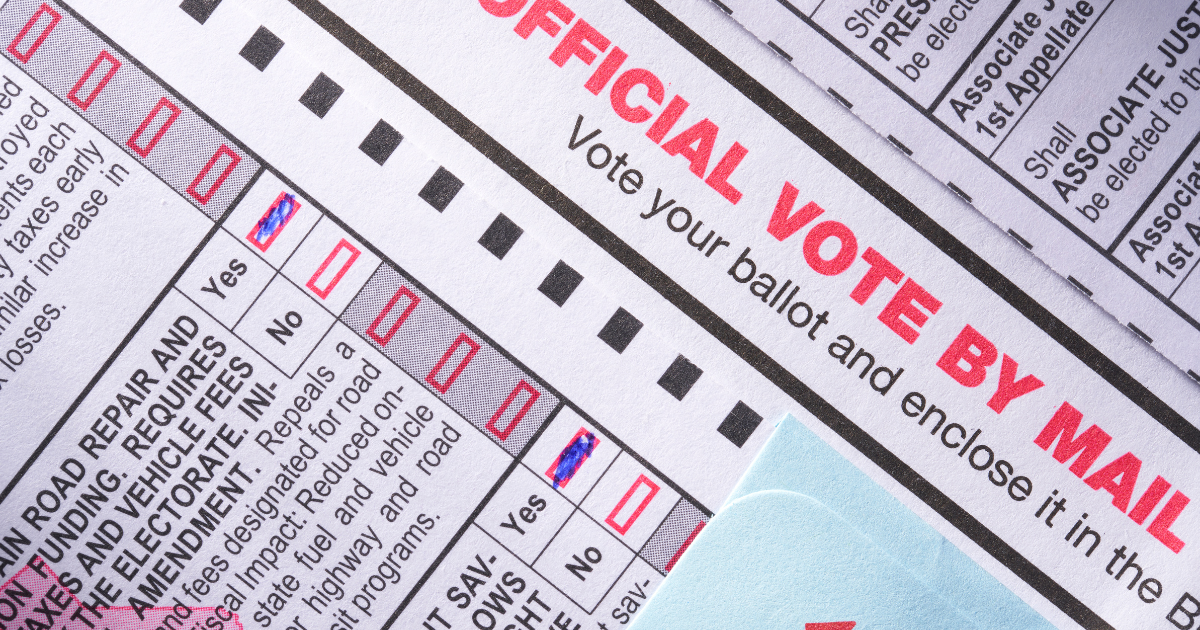A historic Indiana lawsuit seeking increased ballot accessibility for voters with print disabilities has settled. As a result of the settlement, the state has agreed to acquire a new remote accessible ballot marking tool that will allow these voters to cast their absentee ballots privately and independently. Voters will be able to access and mark their ballots digitally with their own assistive technology thanks to this tool. Once the ballot has been marked, voters will be able to submit it via email. The tool will be available to voters in time for the May 2023 primary election.
The Plaintiffs filed a federal lawsuit in December 2020 in the United States District Court for the Southern District of Indiana against the Indiana Election Commission and the Indiana Secretary of State. The Indiana Election Division was added to the lawsuit in October 2021. The Court has granted two preliminary injunctions against the State defendants striking down Indiana’s rule that absentee voters who could not independently mark their own ballot may vote absentee by mail only by appointment with a “traveling board” of elections officials. The Court also extended the latest preliminary injunction through the May 2023 primary election while a legislative amendment removing that requirement is sought.
In the meantime, eligible voters who want to exercise the new remote accessible ballot marking tool option should apply for an absentee ballot. The absentee application can be accessed by logging into the Voter Portal and selecting “Voter With Print Disabilities.” Alternatively, voters with a print disability can complete and submit a PDF version of the form. Absentee voting, commonly known as early voting, begins April 4, 2023. Election Day is May 2, 2023. Voters may contact their county clerk’s office to see if their county will hold an election this year.
This news comes as voters prepare to weigh in on local issues such as public safety and economic development. Indianapolis Mayor Joe Hogsett is running for his third and final term and Fort Wayne Mayor Tom Henry is seeking a historic fifth term. Boone, Dearborn, Floyd, Hamilton, Porter, and Whitley Counties, among others, will all hold elections this year. Because of the case settlement, voters with print disabilities can now vote absentee in these local elections with complete independence.
“I am thankful that our goal to make accessible absentee ballots a reality has actually been accomplished in Indiana. It’s exciting to know that I can vote in the primary and general election using my own adaptive equipment and do so independently and privately. What a great feeling to know I don’t have to deal with getting assistance from others anymore,” said Rita Kersh, plaintiff and President of the American Council of the Blind of Indiana.
“I am very grateful to God for helping us to come to a settlement. I am very hopeful that the state will keep their part of the deal,” said Wanda Tackett, a plaintiff in the suit. “I hope that this settlement will show people what good can come from advocating for themselves. I look forward to seeing actually accessible elections in the state of Indiana going forward.”
“Print disabled people deserve equity in voting rights. By ensuring an accessible electronic means for voting absentee, this settlement agreement provides many of Indiana’s blind and print disabled voters an accessible means to exercise our voting rights, privately and independently,” said Dee Ann Hart, a member of the Board of Directors of the American Council of the Blind of Indiana and its Advocacy and Awareness Committee Chair.
“This settlement realizes the goals of ensuring that voters with disabilities have equal access to all aspects of Indiana’s voting program, including absentee voting,” said Tom Crishon, IDR’s Legal Director. “By agreeing to provide a remote accessible ballot marking tool, the state is finally removing unnecessary and unlawful barriers to voting.”
“Voting and equality are the bedrocks of our democracy. DRA is pleased that Indiana has agreed to extend its email-based absentee voting system, previously used for overseas and military voters, to voters with print disabilities, and looks forward to the repeal of Indiana’s discriminatory ‘traveling board” law requiring that voters with print disabilities rely on strangers for help marking paper absentee ballots,” said Jelena Kolic, a Senior Staff Attorney with Disability Rights Advocates.
Plaintiffs American Council of the Blind of Indiana, Indiana Protection and Advocacy Services Commission, Kristin Fleschner, Rita Kersh, and Wanda Tackett were represented by Tom Crishon and Sam Adams from Indiana Disability Rights and Jelena Kolic, Rosa Lee Bichell, and Madeleine Reichman from Disability Rights Advocates. They pledge to continue monitoring election accessibility to ensure Indiana’s new system is effective. Click here to learn more about the ways to vote in Indiana.
Indiana Disability Rights (IDR) is the designated Protection and Advocacy System and Client Assistance Program for the State of Indiana. IDR’s mission is to uphold, promote, and advance the rights of individuals with disabilities through empowerment and advocacy to achieve a more equitable society. For more information, visit www.IndianaDisabilityRights.org.
Disability Rights Advocates is a leading national nonprofit disability rights legal center. Its mission is to advance equal rights and opportunity for people with all types of disabilities nationwide. DRA has a long history of enforcing the rights of voters with disabilities, including their rights to accessible voting machines, polling places, and online voter registration. Visit www.dralegal.org.






